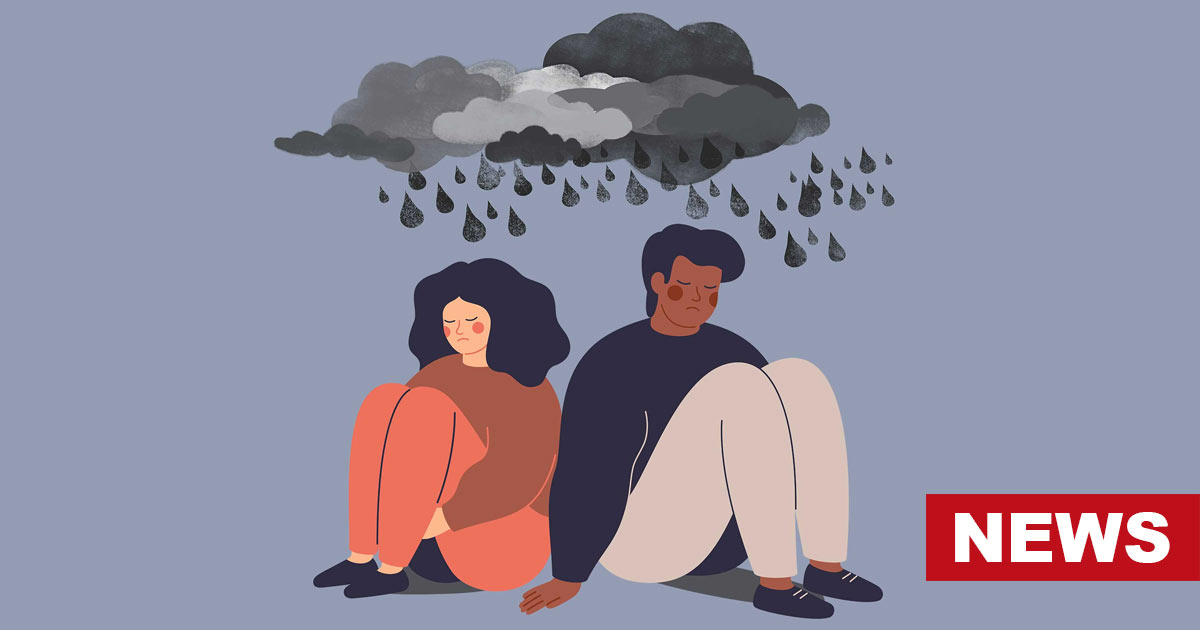- A recent study explored how poor teen mental health impacts parents and their well-being.
- Interventions like “Family Talk” propose to address mental health challenges that families collectively face.
American teenagers are facing increasing challenges, with the rate of high school students reporting chronic feelings of sadness and hopelessness rising significantly. According to the Center for Disease Control and Prevention (CDC), from 2008 to 2019, this rate surged by 65%, reaching one in three students.
Disturbingly, the pandemic exacerbated this issue, as by the fall of 2021, almost 60% of girls and 42% of high school students experienced chronic sadness and hopelessness, with a quarter of teen girls even having suicide plans.
While social media, sleep deprivation, loneliness, and academic pressures have been identified as contributors, the role of strong, nurturing parent-teen relationships in enhancing mental health has been somewhat overlooked. Paradoxically, a considerable number of parents are also struggling with their mental health.
Survey data on parental mental health from December 2022 indicated that around 20% of mothers and 15% of fathers reported anxiety, while 15% of teens reported depression. Remarkably, one-third of teens had a parent experiencing anxiety or depression.
Highlighting how teen mental health impacts parents, data from Making Caring Common Project at the Harvard Graduate School of Education show that parental mental health is as critical as teens’ mental health.
Parallel surveys conducted by this nonprofit focused on teens and young adults, as well as parents or caregivers in the U.S., revealed vital insights into the dynamics when both parties or neither experienced depression or anxiety. These findings signal the pressing need to address parental mental health to foster a healthier environment for teenagers.
Depressed and anxious parents can indeed offer empathetic care-giving, having navigated similar emotional terrains themselves. However, research suggests that children of parents with untreated depression face a higher likelihood of behavior issues, academic struggles, difficulty in coping with stress, forming healthy relationships, and even mental illness.
When both parents and children grapple with these challenges, they can exacerbate each other’s distress. Teens with anxious or depressed parents often show frustration and lash out, adding to the complexities of the situation.
Maintaining an emotional connection with children is crucial for their healthy development, with “serve and return” interactions playing a pivotal role in building trust and self-regulation. Such interactions evolve as children grow, reinforcing their sense of importance and belonging.
Pamela Cantor, a child and adolescent psychiatrist specializing in trauma, emphasizes that strong and trusting relationships release oxytocin, which restores a child’s sense of safety amid stress.
The report from Making Caring Common underscores that both teens and parents experience better mental health outcomes when they are in sync. Acknowledging the challenges that concern how teen mental health impacts parents, experts like William Beardslee (a prominent figure in children’s psychiatry) propose interventions such as “Family Talk.”
This structured approach involves parents discussing their mental health struggles with their children, reassuring them that the parents’ condition isn’t the child’s fault. Effective interventions like these could greatly benefit families facing mental health difficulties.
Additionally, adults should recognize that teens often feel adrift, as the absence of purpose or meaning in life strongly correlates with depression and anxiety. Adolescence, characterized by significant brain development and identity formation, thrives on a sense of meaning and connection to others.
Parents, regardless of their mental state, can play a pivotal role in helping teens discover purpose and navigate these challenges.Cantor draws attention to the resilience exhibited by children during challenging times, supported by the assurance of their caregivers.
She believes that fostering a sense of solvability in the face of difficulties is crucial. By communicating the message that humans heal and solve problems, caregivers can empower teenagers to find solutions and create meaning in their lives.






















